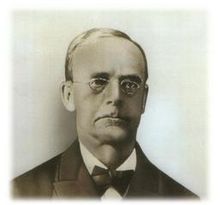Guido Verbeck
| Guido Herman Fridolin Verbeck | |
|---|---|

Guido Herman Fridolin Verbeck
|
|
| Born | January 23, 1830 Zeist, Netherlands |
| Died | March 10, 1898 (aged 68) Tokyo, Japan |
| Nationality | Netherlands |
| Other names | Verbeek |
| Occupation | missionary, educator, foreign advisor to Japan |
| Known for | foreign advisor to Meiji Japan |
Guido Herman Fridolin Verbeck (born Verbeek) (23 January 1830 – 10 March 1898) was a Dutch political advisor, educator, and missionary active in Bakumatsu and Meiji period Japan. He was one of the most important foreign advisors serving the Meiji government and contributed to many major government decisions during the early years of the reign of Emperor Meiji.
Verbeck was born in Zeist, Netherlands as the sixth of eight children in a Moravian family. As a young man, he studied at the Polytechnic Institute of Utrecht in hopes of becoming an engineer. At Zeist he grew up speaking Dutch, German, French and English.
At the age of twenty-two, on the invitation of his brother-in-law, Verbeck traveled to the United States to work at a foundry located outside of Green Bay, Wisconsin, which had been developed by Moravian missionaries to build machinery for steamboats. Verbeck stayed in Wisconsin for almost a year, during which time he changed the spelling of his name from "Verbeek" to "Verbeck" in the hope that Americans could better pronounce it. However he wanted to see more of America and moved to Brooklyn, New York where his sister had previously lived. He then decided to work as a civil engineer in Arkansas, and designed bridges, structures and machines. However, in Arkansas he was deeply moved by the lives of slaves in the southern plantations, and the teachings of H.W. Beecher, a preacher whose sister was Harriet Beecher Stowe, writer of Uncle Tom's Cabin. After almost dying from cholera, he swore that he would become a missionary if he recovered. In 1855 he entered a seminary in Auburn, New York, where many Dutch had immigrated.
...
Wikipedia
